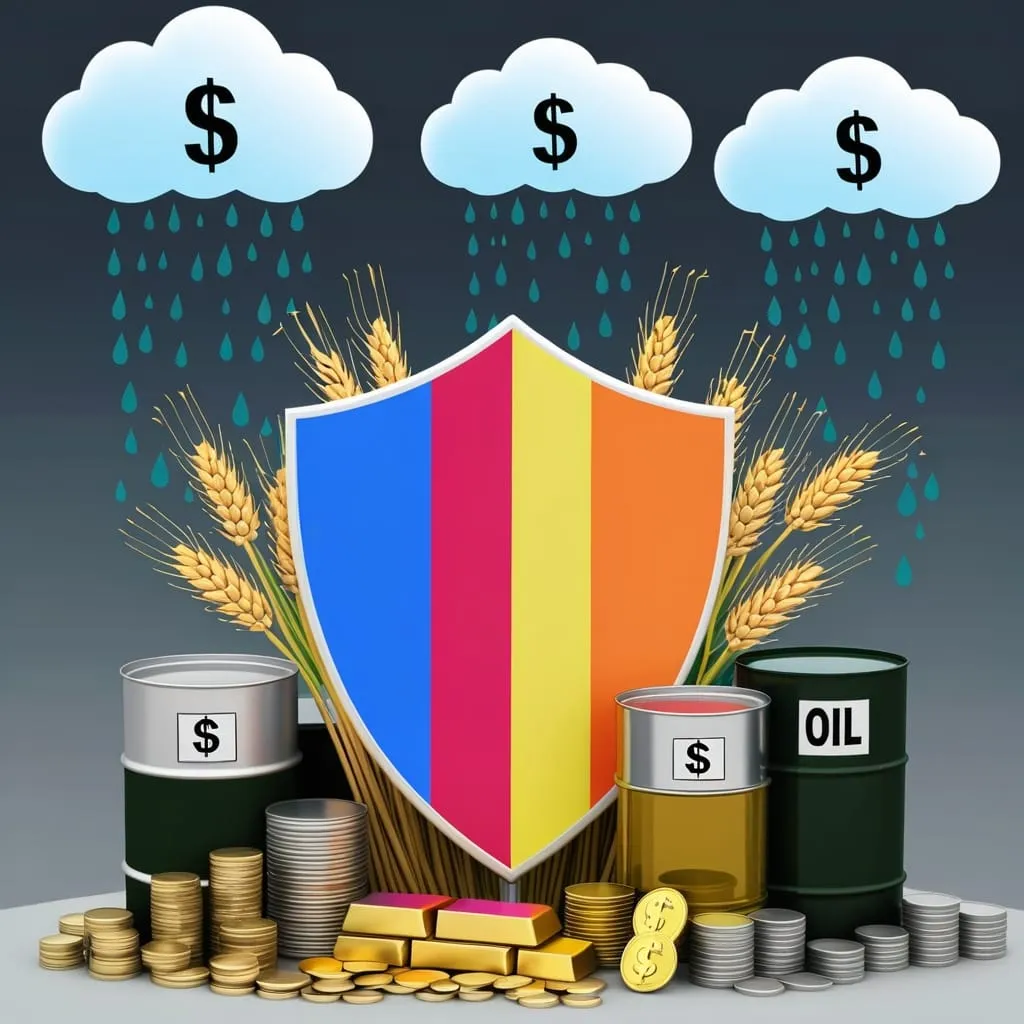Commodities: Your Secret Weapon Against Inflation
Inflation is like that sneaky thief that slowly chips away at your hard-earned money. But don't worry, there's a secret weapon in your investment arsenal: commodities. These raw materials and primary products are the unsung heroes of the financial world, especially when it comes to battling inflation.
Think of commodities as the building blocks of our economy. We're talking about stuff like oil, gold, wheat, and even cattle. These are the things that make our world go round, and they have a special superpower when it comes to inflation.
You see, when inflation starts creeping up, commodity prices often follow suit. It's like they're dancing to the same beat. This makes them a natural shield against the erosion of your purchasing power. Imagine you're holding a gold coin while everything else is getting more expensive. That gold coin is likely to maintain its value or even increase, helping you keep pace with rising prices.
But here's the real kicker - commodities aren't just good at fighting inflation. They're also great team players in your investment portfolio. While stocks and bonds often move in sync, commodities tend to march to their own drum. This means when your stocks are having a bad day, your commodities might be doing just fine, helping to smooth out the bumps in your investment journey.
Now, you might be thinking, "That's all well and good, but how do I actually invest in commodities?" Well, you've got options. You could go old school and buy physical gold bars or barrels of oil, but unless you've got a really big garage, that might not be practical. Instead, most folks opt for more convenient methods.
One popular route is through Exchange-Traded Funds (ETFs). These are like baskets of commodities that you can buy and sell just like stocks. It's a bit like buying a mixed fruit basket instead of individual apples and oranges. You get a bit of everything, spreading out your risk.
Another option is to invest in companies that produce commodities. So instead of buying gold directly, you might invest in a gold mining company. Just keep in mind that the stock price of these companies doesn't always move in lockstep with the price of the commodity they produce.
Let's look at a real-world example to drive this home. In 2022, when the world was still reeling from the pandemic and the Russia-Ukraine conflict was causing havoc, commodity prices went through the roof. Crude oil prices shot up by 48%, and a broad index of commodities increased by 34%. Meanwhile, the stock market was having a rough time. This is exactly the kind of scenario where having commodities in your portfolio can really pay off.
But here's the thing - investing in commodities isn't always smooth sailing. These markets can be as unpredictable as a cat on a hot tin roof. Prices can swing wildly based on everything from weather patterns to geopolitical events. That's why it's crucial to spread your bets across different types of commodities. Don't put all your eggs in one basket, or all your money in one commodity.
It's also important to remember that investing in commodities should be part of a long-term strategy. They're not a get-rich-quick scheme. Sometimes, during periods of low inflation, other investments might perform better. But over the long haul, commodities have proven to be a reliable inflation fighter. Research shows that for every 1% of unexpected inflation, commodities have historically risen by 7% to 9%. That's some serious inflation-beating power!
So, how can you put this knowledge into action? Here are some practical tips:
First, diversify your portfolio. Don't go all-in on commodities. Mix them with stocks, bonds, and other investments to spread your risk.
Second, consider using ETFs for your commodity investments. They're an easy way to get broad exposure without needing to become an expert in each individual commodity.
Third, keep an eye on the bigger economic picture. Things like inflation rates, supply chain issues, and global demand can all impact commodity prices.
Lastly, think long-term. Commodity investing isn't about making a quick buck. It's about protecting your wealth over time.
Remember, investing in commodities is like adding a sturdy umbrella to your financial toolkit. It might not be exciting on a sunny day, but when the inflation storm hits, you'll be glad you have it.
So, next time you hear about rising inflation, don't panic. Instead, think about how you can harness the power of commodities to keep your financial ship steady. With a bit of knowledge and the right strategy, you can turn the challenge of inflation into an opportunity for growth.
In the end, investing is all about being prepared for whatever the economic weather might bring. By understanding the unique role that commodities can play in your portfolio, you're equipping yourself with a versatile tool that can help you navigate through both calm and stormy financial seas.
So go ahead, explore the world of commodity investing. It might just be the secret ingredient your portfolio needs to stand strong against the relentless tide of inflation. After all, in the grand game of investing, it's not just about making money - it's about keeping it too. And with commodities in your corner, you're giving yourself a fighting chance to do just that.






